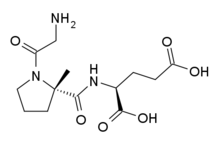

In continuation of my updates on dextromethorphan and Bupropion,
Axsome Therapeutics, Inc. , a biopharmaceutical company developing and delivering novel therapies for the management of central nervous system (CNS) disorders, announced the U.S. Food and Drug Administration (FDA) approval of Auvelity (dextromethorphan HBr -bupropion HCl) extended-release tablets for the treatment of major depressive disorder (MDD) in adults.1 Auvelity is the first and only rapid-acting oral medicine approved for the treatment of MDD with labeling of statistically significant antidepressant efficacy compared to placebo starting at one week. The rapid antidepressant effects of Auvelity were sustained at all subsequent timepoints. Auvelity is the first and only oral N-methyl D-aspartate (NMDA) receptor antagonist approved for the treatment of MDD. Axsome anticipates Auvelity to be commercially available in the U.S. in the fourth quarter of 2022.
Maurizio Fava, MD, Psychiatrist-In-Chief, Department of Psychiatry, Massachusetts General Hospital, Executive Director, Clinical Trials Network & Institute, Associate Dean for Clinical & Translational Research, and Slater Family Professor of Psychiatry, Harvard Medical School said, “The approval of Auvelity represents a milestone in depression treatment based on its novel oral NMDA antagonist mechanism, its rapid antidepressant efficacy demonstrated in controlled trials, and a relatively favorable safety profile. Auvelity, which was granted Breakthrough Therapy designation by the FDA, represents the first new oral non-monoamine-based mechanism of action approved to treat major depressive disorder in over sixty years. Nearly two thirds of patients treated with currently available antidepressants do not adequately respond, and those that do may not achieve clinically meaningful responses for up to six to eight weeks. Given the debilitating nature of depression, the efficacy of Auvelity observed at one week and sustained thereafter may have a significant impact on the current treatment paradigm for this condition.”
Michael Pollock, Chief Executive Officer of the Depression and Bipolar Support Alliance (DBSA), a leading national patient advocacy organization focusing on depression and bipolar disorder said, “The mental health crisis in the United States is one of the most pressing health issues facing our country today. Over 20 million American adults experienced major depressive disorder each year prior to the COVID-19 pandemic. These numbers increased dramatically during the pandemic with approximately thirty percent of adults in the U.S. or more than 80 million Americans experiencing elevated symptoms of depression. The need for new treatment options, particularly those with new mechanisms of action, could not be clearer and more urgent for those living with, or impacted by, major depressive disorder.”
Dan V. Iosifescu, MD, Professor of Psychiatry at the New York University School of Medicine, and Director of the Clinical Research Division at the Nathan Kline Institute for Psychiatric Research said, “Major depressive disorder is disabling and potentially life-threatening, causes profound distress for patients and their families, and leads to substantial healthcare resource utilization. Auvelity’s oral NMDA receptor antagonist and sigma-1 receptor agonist activity, which targets glutamatergic neurotransmission, provides clinicians a long sought after new mechanistic approach which may benefit the millions of patients living with this serious condition. In clinical trials, Auvelity has demonstrated rapid and statistically significant improvement in depressive symptoms as early as Week 1, and increased rates of remission at Week 2 compared with placebo. This early benefit with Auvelity was maintained and increased with continued treatment, and was accompanied by a favorable safety and tolerability profile.”
Auvelity was studied in a comprehensive clinical program which included more than 1,100 patients with depression. The efficacy of Auvelity in the treatment of MDD was demonstrated in the GEMINI placebo-controlled study, and confirmatory evidence which included the ASCEND study comparing Auvelity to bupropion sustained-release tablets. In the GEMENI study, Auvelity was statistically significantly superior to placebo in improvement of depressive symptoms as measured by the change in the Montgomery-Åsberg Depression Rating Scale (MADRS) total score at Week 6, the study’s primary endpoint. To evaluate speed of onset of action, the change in MADRS total score from baseline to Week 1 and from baseline to Week 2 were pre-specified secondary efficacy endpoints. The difference between Auvelity and placebo in change from baseline in MADRS total score was statistically significant at Week 1 and at Week 2.1 In the ASCEND study, Auvelity was statistically significantly superior to bupropion sustained-release tablets 105 mg twice daily on the primary outcome measure.5 The primary outcome measure of the ASCEND study was calculated by assessing the change from baseline in MADRS total scores from Week 1 to Week 6 and then taking the average of those scores.1 In the placebo-controlled clinical study, the most common (incidence ≥5% for Auvelity and more than twice as frequently as placebo) adverse reactions were dizziness, headache, diarrhea, somnolence, dry mouth, sexual dysfunction, and hyperhidrosis.1
The FDA granted Breakthrough Therapy designation for Auvelity for the treatment of MDD in March 2019. This designation is granted to candidate drugs that show potential for benefit above that of available therapies based on preliminary clinical data, and it provides the sponsor with added focus from and greater interactions with FDA staff during the development of the candidate drug.6 The Auvelity New Drug Application (NDA) was evaluated by the FDA under Priority Review, which is granted by the FDA to applications for medicines that, if approved, would provide significant improvements in the effectiveness or safety of the treatment, diagnosis, or prevention of serious conditions when compared to standard applications.
https://en.wikipedia.org/wiki/Bupropion
https://en.wikipedia.org/wiki/Dextromethorphan




